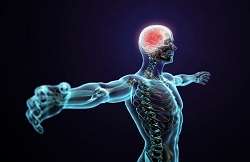U.S. biotech companies will attempt to regenerate the brains of dead people

Two biotech companies in the United States have been given the green light to see if it is possible to regenerate the brains of dead people.
Bioquark Inc., in collaboration with Revita Life Sciences, has been given ethical permission by US health authorities to recruit 20 patients who have been declared clinically dead from a traumatic brain injury to test whether parts of their central nervous system (CNS) can be brought back to life.
Scientists working on the ReAnima Project will use a combination of therapies, which include injecting the brain with stem cells and a cocktail of amino acids, as well as deploying lasers and nerve stimulation techniques which have been shown to bring patients out of comas. The first trial will be a non-randomised, single group 'proof of concept' trial and will take place at Anupam Hospital in Rudrapur, Uttarakhand, India.
The trial participants will have been certified dead and only kept alive through life support. They will be monitored for several months using brain imaging equipment to look for signs of regeneration, particularly in the upper spinal cord - the lowest region of the brain stem which controls independent breathing and heartbeat.
Death is defined as the termination of all biological functions that sustain a living organism. Brain death, the complete and irreversible loss of brain function (including involuntary activity necessary to sustain life) as defined in the 1968 report of the Ad Hoc Committee of Harvard Medical School, is the legal definition of human death in most countries around the world.
Although brain dead humans are technically no longer alive, some studies have shown that electrical activity in the brain does continue, allowing the body to still circulate blood, digest food, excrete waste, balance hormones, grow, sexually mature, heal wounds, spike a fever, and gestate and deliver a baby. However such levels of electrical activity are simply not enough to allow the body to function fully.
Whilst human beings lack substantial regenerative capabilities in the CNS, many non-human species, such as amphibians, planarians, and certain fish, can repair, regenerate and remodel substantial portions of their brain and brain stem even after critical life-threatening trauma.
Additionally, recent studies on complex brain regeneration in these organisms have highlighted unique findings in relation to the storage of memories following the destruction of the entire brain, which may have wide ranging implications for our understanding of consciousness and the stability of memory persistence.
'Through our study, we will gain unique insights into the state of human brain death, which will have important connections to future therapeutic development for other severe disorders of consciousness, such as coma, and the vegetative and minimally conscious states, as well as a range of degenerative CNS conditions, including Alzheimer's and Parkinson's disease,' commented Dr. Sergei Paylian, Founder, President, and Chief Science Officer of Bioquark Inc.
















